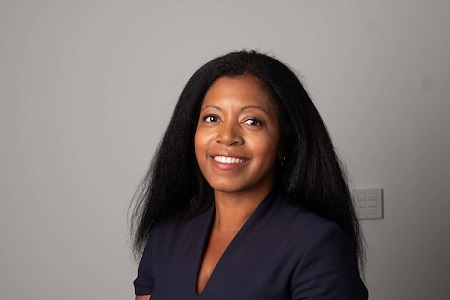
Elaine Banton in her role as the Co-Chair, explains the different aspects of the Equality, Diversity and Social Mobility Committee's work, as part of our blog series for International Women's Day 2022.
“Dignity really means that I deserve the best treatment I can receive. And that I have the responsibility to give the best treatment I can to other people,” Maya Angelou
Prior to undertaking my Bar finals, my dissertation for my master’s degree was on the incidence of sex and race discrimination around involuntary treatment under the Mental Health Act 1983 and it’s fair to say that equality and diversity has been a core area of practice throughout my career.
Propelled by the desire to effect meaningful change, several years ago I joined the Equality Diversity and Social Mobility Committee (EDSM) of the Bar Council. I became Co-Chair of the EDSM at the beginning of 2020 and was later elected to the GMC.
The work of the EDSM Committee encompasses many areas; effectively all of the protected characteristics under the Equality Act 2010 as well as social mobility. We understand, crucially that a strong resilient Bar, holding public confidence is one reflective of all of the rich, dynamic talent within society. The judiciary, particularly senior appointments, are also drawn from the Bar. It follows that the promotion of equality and diversity in terms of access, retention and progression at the Bar are central action points for the Committee’s work.
The EDSM Committee whilst large, with a wide remit and membership reflecting interests in various areas, is also agile in responses. It works typically with sub or working groups focussing on particular areas to maximise impact and drive change. For example, the Race Working Group has been well placed to utilise the expertise of its Co-Chairs and membership in order to publish reports, hold events to raise awareness, give practical insights and promote best practice across the Bar. The Social Mobility and Bullying working groups are most recent examples of this work.
What the Bar Council is uniquely placed to do is provide the data, interrogate, analyse, and thereby educate and raise awareness. Bar Council reports, collating such data and suggesting recommendations, may be helpfully utilised to facilitate and support key discussions within chambers around inequalities and disparities which may otherwise be difficult to broach. Contributing to the Monitoring Work Distribution Toolkits on Sex and Race are prime examples of this work as we know that income plays a pivotal role in retention, progression, and general equity at the Bar.
Some of the work of the Committee involves strategic responses to government consultations from the perspective of equality law, considering equality impacts and how these may affect the Bar. We regularly collaborate with various stakeholders involved such as the BSB, JAC, HMCTS on differing initiatives (such as PAJE; the Pre-Application, Judicial Education Programme) and will raise points of particular importance from the perspective of barristers. Confidential assistance behind the scenes in resolving complaints and disputes is sensitive, important work to support barristers.
Emerging from the Covid-19 pandemic, both the safeguarding and promotion of equality and diversity of the Bar remains as imperative as ever and is rightly at the heart of what we do.
Elaine Banton practices in employment, equality and discrimination law at 7BR Chambers.
Access more information and blogs about Women in Law.